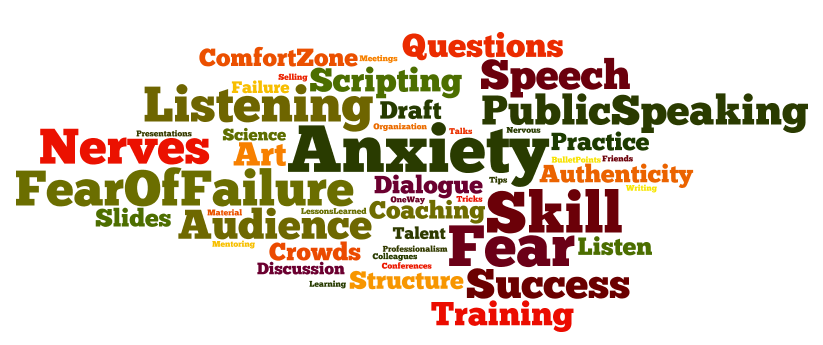Do you get nervous when speaking in public? You are not alone. Julia Roberts (award-winning actress), Warren Buffet (one of the richest people on earth), and Mahatma Gandhi (world-renown leader of India’s independence movement), are just a few people who have also had speech anxiety.
We never stop to think about why we start shaking, sweating, and swearing (at least in our heads) profusely whenever we have to address an audience; we just know that it happens. There are many reasons behind our fear. Humiliation is one and stigma is another.
I once sat with a friend, whom we shall call Tom, who has spent 35,000 hours working with people 1:1 as a psychotherapist. “That’s four years of continuous, non-stop listening without criticism, judgment and unnecessary advice,” he proudly asserts. Through his work, Tom found that people tend to have unconscious thoughts that center around insecurity, pain, anger, and fantasies they consider unforgivable. We all live with these thoughts but hardly ever share them. How does all of this relate to public speaking? Good question.
We subconsciously believe that we will get in front of a crowd and blow our cover; our deepest, darkest, secrets will come pouring out for the world to see. This would leave us feeling vulnerable and humiliated. One simple way to combat this anxiety is to realize how normal these feelings are; we are humans, not robots. The other is to try and think of the last time you accidentally “spilled your guts” while speaking to an audience. The chances of it happening are virtually non-existent.
What about stigma? Think about the shameful messages we receive from society when we have common speech impediments, such as a stutter or lisp (former Vice President Joe Biden and pro golfer Tiger Woods are included). Sometimes they make us feel unworthy of sharing our thoughts and opinions with others.
The good news is that minor mental adjustments can help you change your attitude towards these nonproductive forces. Here they are two:
These are just a few tips to think about. If powerful public speaking interests you, take a look at my book for more. As always, feel free to reach out via email or through my site with any questions you may have. :)
Best,
Steve
We never stop to think about why we start shaking, sweating, and swearing (at least in our heads) profusely whenever we have to address an audience; we just know that it happens. There are many reasons behind our fear. Humiliation is one and stigma is another.
I once sat with a friend, whom we shall call Tom, who has spent 35,000 hours working with people 1:1 as a psychotherapist. “That’s four years of continuous, non-stop listening without criticism, judgment and unnecessary advice,” he proudly asserts. Through his work, Tom found that people tend to have unconscious thoughts that center around insecurity, pain, anger, and fantasies they consider unforgivable. We all live with these thoughts but hardly ever share them. How does all of this relate to public speaking? Good question.
We subconsciously believe that we will get in front of a crowd and blow our cover; our deepest, darkest, secrets will come pouring out for the world to see. This would leave us feeling vulnerable and humiliated. One simple way to combat this anxiety is to realize how normal these feelings are; we are humans, not robots. The other is to try and think of the last time you accidentally “spilled your guts” while speaking to an audience. The chances of it happening are virtually non-existent.
What about stigma? Think about the shameful messages we receive from society when we have common speech impediments, such as a stutter or lisp (former Vice President Joe Biden and pro golfer Tiger Woods are included). Sometimes they make us feel unworthy of sharing our thoughts and opinions with others.
The good news is that minor mental adjustments can help you change your attitude towards these nonproductive forces. Here they are two:
- We want you to do well- have you ever attended a presentation and secretly hoped the speaker bored you to death? I didn’t think so. People are supporting you more than you imagine; they are often willing to overlook slight “mistakes” in your delivery just because of how brave you appear to them.
- You are our hero- most people are petrified of trading places with you. They fear public speaking just as much as you used to (they haven’t read this article yet). The fact that you are willing to speak in front of them demonstrates that you have character, courage, and charisma. We all admire these qualities in others.
These are just a few tips to think about. If powerful public speaking interests you, take a look at my book for more. As always, feel free to reach out via email or through my site with any questions you may have. :)
Best,
Steve

 RSS Feed
RSS Feed